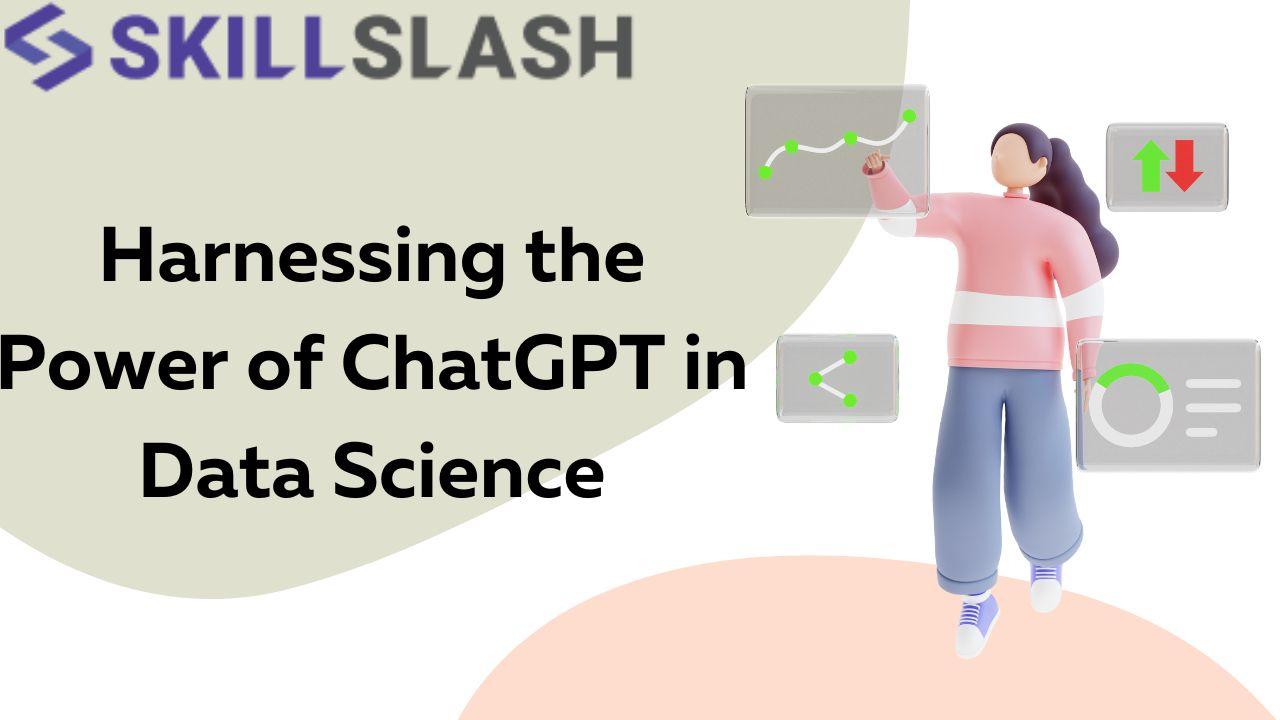Introduction:
In recent years, the field of data science has witnessed significant advancements, and one of the groundbreaking technologies that has revolutionized the domain is ChatGPT. Powered by state-of-the-art artificial intelligence algorithms, ChatGPT is an advanced language model developed by OpenAI. It has opened up new possibilities and applications in various sectors, including data science. This article explores the diverse applications and benefits of using ChatGPT in data science.
1. Natural Language Processing and Text Analysis:
ChatGPT's ability to understand and generate human-like text has immense potential in natural language processing (NLP) and text analysis tasks. It can assist data scientists in tasks such as sentiment analysis, topic modeling, text classification, named entity recognition, and language translation. With ChatGPT, complex text data can be processed and analyzed efficiently, enabling better insights and decision-making.
2. Data Generation and Augmentation:
Generating synthetic data for training machine learning models is often challenging. However, ChatGPT can be employed to generate realistic data that mimics the characteristics of the original dataset. This synthetic data can then be used to augment the training data, thereby improving the performance and generalization of machine learning models.
3. Chatbot Development and Customer Support:
ChatGPT's conversational abilities make it an ideal choice for developing chatbots and enhancing customer support systems. By integrating ChatGPT into chatbot frameworks, data scientists can create intelligent virtual assistants capable of understanding and responding to user queries and providing personalized assistance. This improves customer experiences, reduces response times, and streamlines customer support processes.
4. Data Preprocessing and Cleansing:
Data preprocessing is a crucial step in data science, often requiring manual effort to clean and transform data. ChatGPT can be leveraged to automate and streamline data preprocessing tasks. It can identify missing values, outliers, and inconsistencies in the data, suggest data transformations, and perform data imputation, significantly reducing the time and effort required in the data cleaning process.
5. Exploratory Data Analysis and Visualization:
Exploratory Data Analysis (EDA) plays a vital role in understanding the characteristics of a dataset. ChatGPT can assist data scientists in performing interactive data exploration, generating descriptive statistics, visualizing data distributions, and identifying patterns or anomalies. Through its conversational interface, ChatGPT can guide data scientists through the EDA process, allowing for dynamic and interactive analysis.
6. Model Selection and Hyperparameter Tuning:
Choosing the right machine learning model and fine-tuning its hyperparameters are critical steps in the data science workflow. ChatGPT can provide insights and recommendations for model selection based on the problem statement, dataset, and performance requirements. Additionally, it can suggest hyperparameter configurations, saving data scientists time and effort in the model optimization process.
7. Anomaly Detection and Fraud Prevention:
ChatGPT's ability to understand and analyze complex data patterns can be utilized in anomaly detection and fraud prevention. By training the model on historical data, it can identify unusual behaviors, patterns, or transactions that deviate from the norm. This can help organizations proactively detect and prevent fraudulent activities, safeguarding their operations and financial interests.
8. Recommendation Systems:
ChatGPT can contribute to building advanced recommendation systems by analyzing user preferences and historical data. It can generate personalized recommendations based on user interactions, browsing behavior, and contextual information, leading to enhanced user experiences and increased engagement.
9. Time Series Analysis:
Time series data analysis is crucial in various domains, such as finance, forecasting, and resource optimization. ChatGPT can assist in analyzing and modeling time series data, identifying trends, seasonality, and forecasting future values. This capability is valuable in making informed business decisions and predicting future outcomes.
10. Data Privacy and Security:
Data privacy and security are paramount concerns in data science. ChatGPT can contribute to ensuring data privacy by anonymizing sensitive information through text redaction and data masking techniques. It can also aid in identifying potential data breaches or security vulnerabilities, enhancing overall data protection measures.
11. Data-driven Insights for Business Strategy:
ChatGPT's ability to analyze vast amounts of data can help organizations gain data-driven insights for shaping their business strategies. By uncovering patterns, correlations, and market trends, data scientists can provide valuable recommendations and guidance to business leaders, facilitating strategic decision-making and competitive advantage.
12. Collaboration and Knowledge Sharing:
ChatGPT can act as a collaborative tool for data scientists, enabling knowledge sharing and collaboration within teams. It can assist in documenting and sharing project progress, code snippets, and data analysis findings, fostering collaboration and accelerating the pace of research and development.
13. Continuous Learning and Adaptation:
ChatGPT's capability to continuously learn and adapt from user interactions and feedback is invaluable in data science. As it interacts with users, it can refine its responses, learn from new data patterns, and improve its performance over time, resulting in a more sophisticated and context-aware AI model.
14. Ethical Considerations:
As with any AI technology, ethical considerations are important in the use of ChatGPT. Data scientists must ensure transparency, fairness, and accountability in their use of the model, addressing biases and potential ethical concerns to build trustworthy and responsible AI systems.
15. Future Developments and Innovations:
The field of data science is evolving rapidly, and the potential applications of ChatGPT are continually expanding. Ongoing advancements in AI research and developments in models like ChatGPT hold promise for future innovations in data science, enabling more complex analysis, improved decision-making, and breakthrough discoveries.
Conclusion:
The integration of ChatGPT in data science has significantly expanded the capabilities and efficiency of data scientists in various areas. From NLP and text analysis to data preprocessing, chatbot development, and exploratory data analysis, ChatGPT offers a range of applications that enhance the overall data science workflow. As the technology continues to advance, ChatGPT is expected to play an increasingly pivotal role in enabling data scientists to extract valuable insights, improve decision-making, and push the boundaries of innovation in the field of data science.

